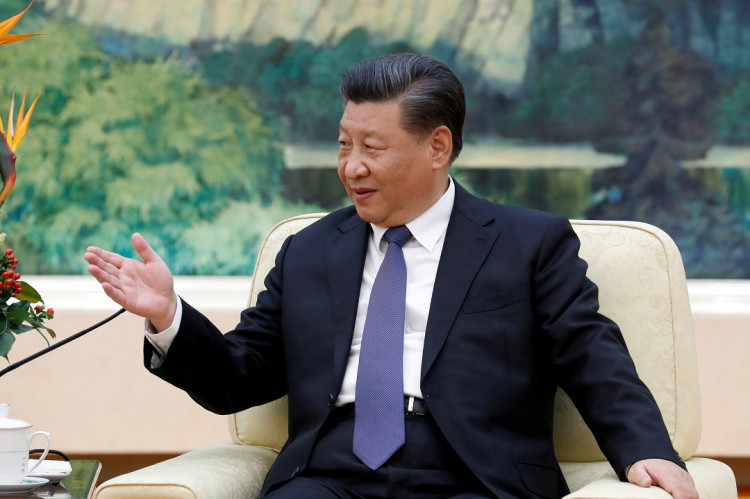Chinese President Xi Jinping held a significant meeting with leading American CEOs and academics at the Great Hall of the People in Beijing. This gathering comes at a crucial time as China seeks to navigate through the complexities of its economic recovery efforts and persistent global tensions. Among the prominent figures in attendance were Stephen Schwarzman of Blackstone, Mark Carney of Bloomberg, FedEx's Rajesh Subramaniam, and Qualcomm's Cristiano Amon, signaling the high stakes of this diplomatic engagement.
Xi's dialogue with these business moguls underscored China's commitment to a "healthy and sustainable" economy, emphasizing the indispensable role of international collaboration in this journey. This meeting, set against the backdrop of the China Development Forum, highlights a concerted effort by the Chinese government to mend fences with American companies, which have been rattled by a spate of regulatory crackdowns and a new anti-espionage law.
China's economy, although it achieved a 5.2 percent growth rate last year, is grappling with deep-rooted structural issues from a real estate crisis to high youth unemployment. Scott Kennedy from the Center for Strategic and International Studies reflects on the prevailing "dark mood" regarding China's economic trajectory and global standing. This sentiment, he notes, is dampening consumer confidence and investment, further complicating the nation's recovery path.
The U.S.-China relationship has been fraught with challenges, from trade disputes to tensions over Taiwan and the South China Sea. Yet, recent engagements, including a notable summit in California between Xi and President Joe Biden, have sparked a glimmer of hope. Xi's interactions with U.S. executives, such as Apple's Tim Cook, underscore a strategic push to reassure and attract foreign investment back to China.
China's economy has witnessed a concerning decline in foreign direct investment, with a 19.9% drop in the first two months of this year alone. This trend is alarming for a country that has historically been a magnet for international capital, particularly from American multinationals. The Chinese government's response, including easing some investment regulations and promising equitable treatment for foreign companies, aims to reverse this downturn.
However, the effectiveness of these measures remains to be seen. Sean Stein, chair of the American Chamber of Commerce in China, cautions that while policy announcements are encouraging, tangible market and investment shifts hinge on their full and timely implementation.
Commerce Minister Wang Wentao's meeting with Tim Cook, where he urged Apple to deepen its engagement with the Chinese market, reflects China's broader strategy to woo international businesses. Despite regulatory and geopolitical hurdles, Cook's optimism about Apple's future in China highlights the complex interdependencies defining U.S.-China business relations.
The integration of U.S. executives into high-level discussions in Beijing, amidst China's ongoing economic and regulatory challenges, is a tactical maneuver by Xi to instill confidence among foreign investors. As China seeks to rejuvenate its economic landscape and restore its position as a premier global investment destination, the international business community remains watchful, gauging the country's commitment to reform and openness.
In this intricate dance of diplomacy and economic strategy, the outcomes of Xi's overtures to American business leaders will be pivotal in shaping the future contours of U.S.-China relations. As both nations navigate their complex interdependencies, the global economic landscape hangs in the balance, awaiting the tangible impacts of these high-stakes engagements.






